Ya-Dong Wu
Artificial intelligence for representing and characterizing quantum systems
Sep 05, 2025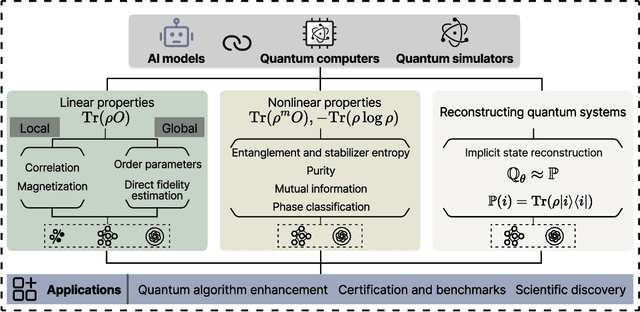
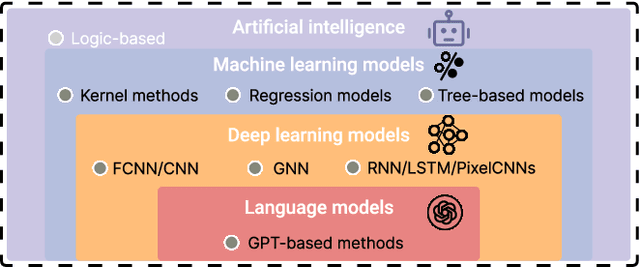
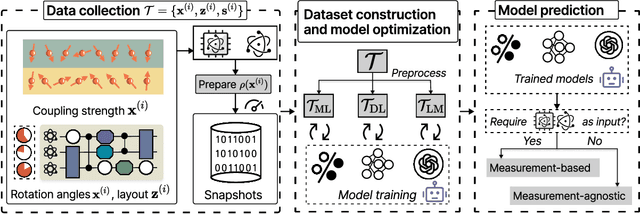

Abstract:Efficient characterization of large-scale quantum systems, especially those produced by quantum analog simulators and megaquop quantum computers, poses a central challenge in quantum science due to the exponential scaling of the Hilbert space with respect to system size. Recent advances in artificial intelligence (AI), with its aptitude for high-dimensional pattern recognition and function approximation, have emerged as a powerful tool to address this challenge. A growing body of research has leveraged AI to represent and characterize scalable quantum systems, spanning from theoretical foundations to experimental realizations. Depending on how prior knowledge and learning architectures are incorporated, the integration of AI into quantum system characterization can be categorized into three synergistic paradigms: machine learning, and, in particular, deep learning and language models. This review discusses how each of these AI paradigms contributes to two core tasks in quantum systems characterization: quantum property prediction and the construction of surrogates for quantum states. These tasks underlie diverse applications, from quantum certification and benchmarking to the enhancement of quantum algorithms and the understanding of strongly correlated phases of matter. Key challenges and open questions are also discussed, together with future prospects at the interface of AI and quantum science.
Learning and Discovering Quantum Properties with Multi-Task Neural Networks
Oct 18, 2023Abstract:Deep neural networks are a powerful tool for predicting properties of quantum states from limited measurement data. Here we develop a network model that can simultaneously predict multiple quantum properties, including not only expectation values of quantum observables, but also general nonlinear functions of the quantum state, like entanglement entropies and many-body topological invariants. Remarkably, we find that a model trained on a given set of properties can also discover new properties outside that set. Multi-purpose training also enables the model to infer global properties of many-body quantum systems from local measurements, to classify symmetry protected topological phases of matter, and to discover unknown boundaries between different phases.
A Data-Driven Approach to Quantum Cross-Platform Verification
Nov 03, 2022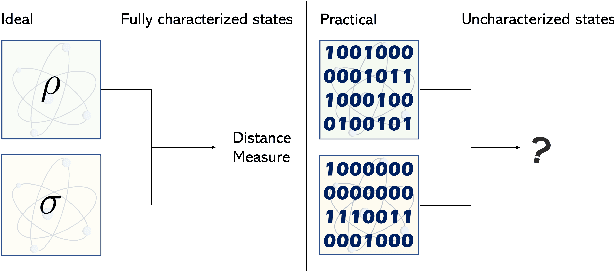
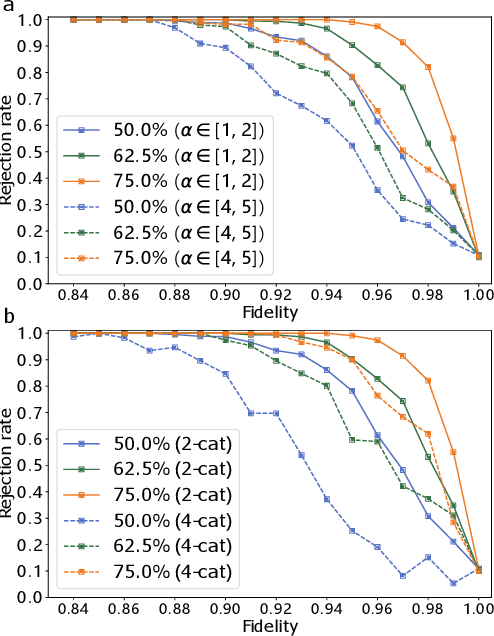
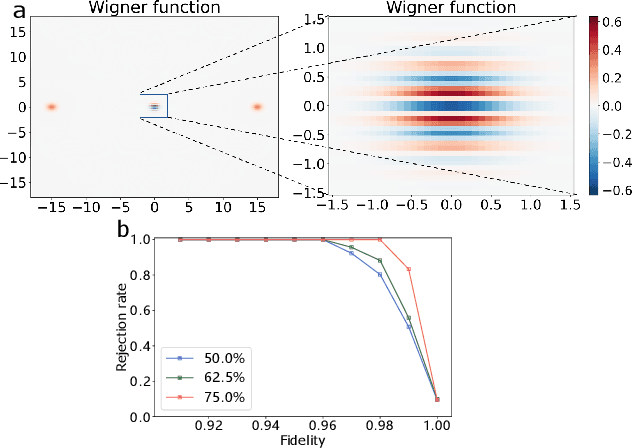
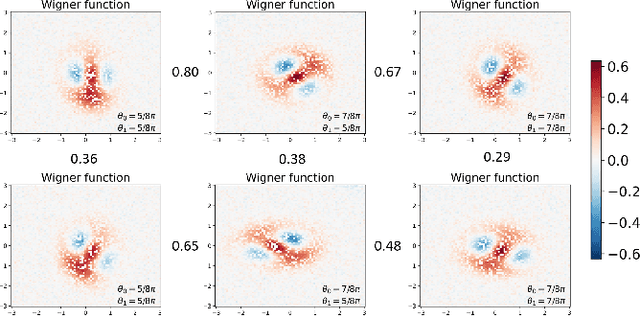
Abstract:The task of testing whether two uncharacterized devices behave in the same way, known as cross-platform verification, is crucial for benchmarking quantum simulators and near-term quantum computers. Cross-platform verification becomes increasingly challenging as the system's dimensionality increases, and has so far remained intractable for continuous variable quantum systems. In this Letter, we develop a data-driven approach, working with limited noisy data and suitable for continuous variable quantum states. Our approach is based on a convolutional neural network that assesses the similarity of quantum states based on a lower-dimensional state representation built from measurement data. The network can be trained offline with classically simulated data, and is demonstrated here on non-Gaussian quantum states for which cross-platform verification could not be achieved with previous techniques. It can also be applied to cross-platform verification of quantum dynamics and to the problem of experimentally testing whether two quantum states are equivalent up to Gaussian unitary transformations.
Flexible learning of quantum states with generative query neural networks
Feb 14, 2022
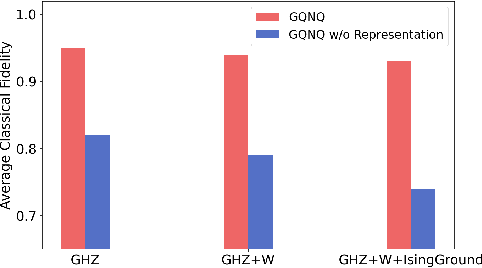


Abstract:Deep neural networks are a powerful tool for characterizing quantum states. In this task, neural networks are typically trained with measurement data gathered from the quantum state to be characterized. But is it possible to train a neural network in a general-purpose way, which makes it applicable to multiple unknown quantum states? Here we show that learning across multiple quantum states and different measurement settings can be achieved by a generative query neural network, a type of neural network originally used in the classical domain for learning 3D scenes from 2D pictures. Our network can be trained offline with classically simulated data, and later be used to characterize unknown quantum states from real experimental data. With little guidance of quantum physics, the network builds its own data-driven representation of quantum states, and then uses it to predict the outcome probabilities of requested quantum measurements on the states of interest. This approach can be applied to state learning scenarios where quantum measurement settings are not informationally complete and predictions must be given in real time, as experimental data become available, as well as to adversarial scenarios where measurement choices and prediction requests are designed to expose learning inaccuracies. The internal representation produced by the network can be used for other tasks beyond state characterization, including clustering of states and prediction of physical properties. The features of our method are illustrated on many-qubit ground states of Ising model and continuous-variable non-Gaussian states.
 Add to Chrome
Add to Chrome Add to Firefox
Add to Firefox Add to Edge
Add to Edge